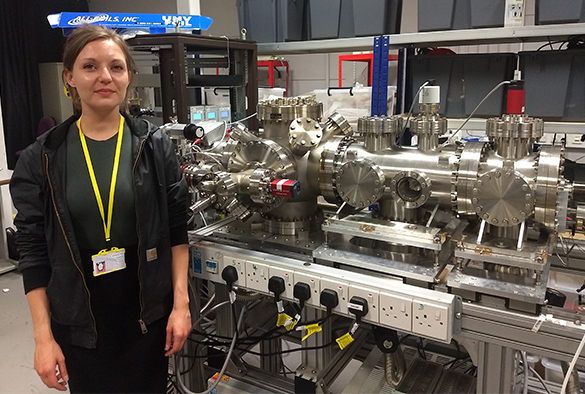Ines Maltusch – Reflections on her internship with the QUASAR Group

Ines Maltusch, who joined the QUASAR Group in May 2022 for an internship, has just returned to her native Germany to continue her M.Sc. studies on Nuclear Applications with a focus on Medical Physics at the Fachhochschule Aachen.
Here she reflects on her experience: “The 6-month internship with the QUASAR Group allowed me to gain an insight in cutting-edge research in accelerator science conducted at the Cockcroft Institute.”
Ines was working at the Gas-Jet Monitor project and performed measurements related to the Quantum Jet project with the goal to achieve a high-resolution two-dimensional transversal beam profile of an ionizing beam. The work she has done will be part of her master thesis. Over the six months she was able to acquire the necessary theoretical knowledge and perform experimental work in the laboratory, which will be helpful for her work after her studies.
Ines says: “Working in an academic environment, especially in another country than the one where I study and getting an insight in the problems and solution finding processes that come along with it was interesting for me and also helped me to determine my future career plans.”
The insight in the academic working area did not only involved the work on the project itself, but also attending the IOP conference and helping with the organization, and attending other scientific talks, e.g. at the kick-off meeting of the LIV.INNO program of the University of Liverpool or the RUEDI Townhall meeting at the Cockcroft Institute.
“Both meetings were enlightening, because not only accelerator physicist gave talks about their research, but in addition geologists, data and material scientists introduced their work.” says Ines.
Getting the opportunity to see how research programs and conferences are organized is a valuable experience besides the scientific work related to the project.
Ines summarizes her experience: “The supervisors and other PhD students were throughout very supportive, and I am lucky to have been able to participate in the work of a group like the QUASAR group.”